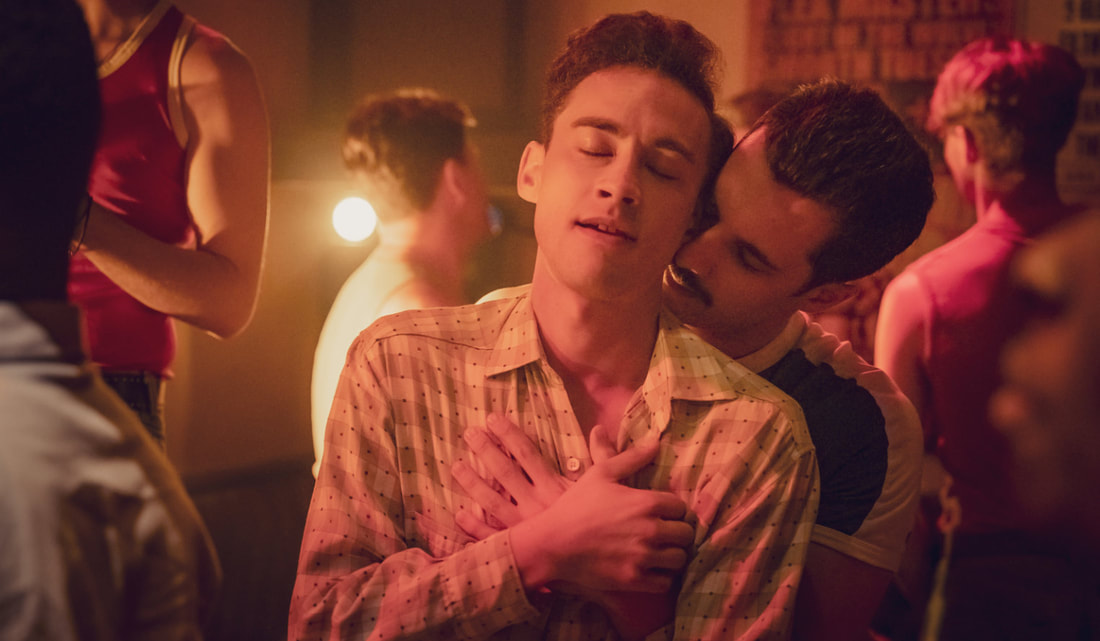It’s A Sin also became the first television production with an LGBTQ+ script in the UK to utilise an innovative new method of intimacy coordination for its sex scenes. Intimacy On Set, founded by Intimacy Coordinator and Movement Director Ita O’Brien, provides services to television, film and theatre productions that include scenes of sexual content and nudity, to make sure the actors involved aren’t pushed into a place of discomfort.
Ita tells GAY TIMES that her idea for these guidelines came to fruition in 2014, as she researched “the dynamic abuse in our society”. After one of her fellow colleagues at Mountview, one of the UK’s leading drama schools, asked her to teach the method to their students, Ita spent the next three years honing the technique so the entertainment industry could “do intimate content well”. Following various accusations of sexual misconduct aimed at Harvey Weinstein, and the subsequent Me Too movement, Ita’s guidelines were in high demand. Soon after, she landed work as an Intimacy Coordinator on Netflix’s Sex Education and BBC One’s Gentlemen Jack.
“We’re making sure there’s open communication, talking about it right from the get-go, way before the day on-set, putting in place agreement and consent. That’s across the board of touch, nudity and making sure there’s really clear choreography so there’s a physical structure, so all the actors know exactly what they’re gonna do, serve the writing and the director’s vision,” Ita says. “The intention is that nothing is left unsaid; everything’s communicated with clear details. We do our homework so that we make sure we’re honouring whatever the storytelling is and whatever physicality is asked. Then, we can create the best work.”
In the past, Ita reveals that she’s been on several problematic productions where the actors were in “fear” over filming sex scenes, due to a significant lack of “communication” with the director, who failed to outline what the scene should look like and how they should perform. “While they’re putting their clothes on, they’d be shaking. They’d walk on set and wouldn’t know what was going to happen,” she recalls. “Very often, they wouldn’t have even met the person they’re having the sex scene with. They’re told, ‘Get in front of the camera and do it.'” On numerous occasions, Ita would be told by a producer to ‘Check in with the actors, do waivers, stand back and do nothing.’ Ita remembers one specific incident where she attempted to help an anxious actor in the middle of their scene, which resulted in an unnamed, disgruntled director stepping in and shouting, ‘Just let her act it!’
“Before the guidelines, there was this unspoken place where it was like, ‘Everyone does sex, so we don’t need a specialist,’ when it’s actually a body dance. These are two people moving together with a rhythm. It’s just like a tango or a fight,” she states. “There’s a risk, when someone’s intimate and private body is at play, if it’s not done well, they can feel anything from awkward to harassed and downright abused. That impacts, not just someone’s artistry and craft, but their lives.”
More . . .


 RSS Feed
RSS Feed
